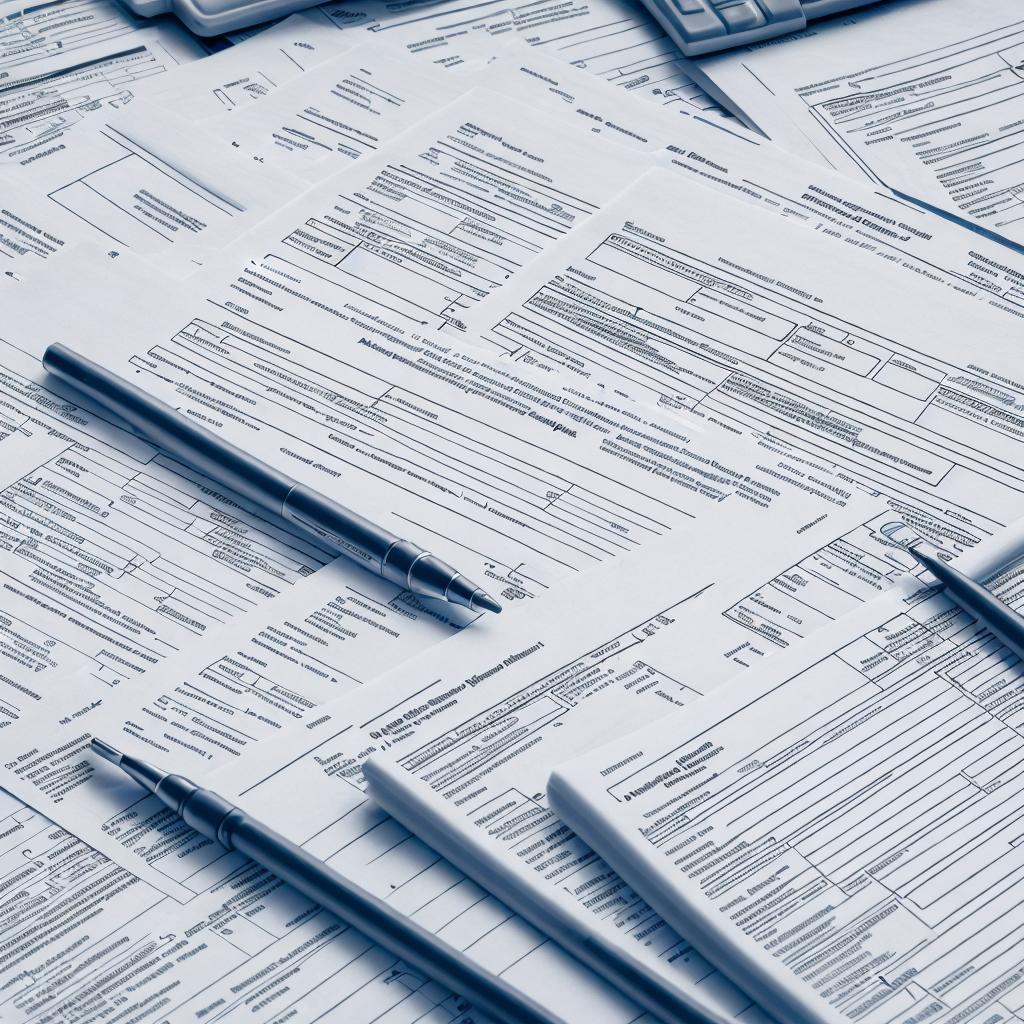6 Best Documents Required for Medicaid Application

Are you ready to apply for Medicaid? Before you jump in, make sure you have the right documents in hand. In this article, we’ll show you the top six documents you need to have for a successful Medicaid application.
From proof of identity to income verification, we’ve got you covered.
Don’t waste any time – let’s dive in and ensure you have everything you need to secure your Medicaid benefits.
Key Takeaways
- Valid government-issued identification document is required for Medicaid application.
- Proof of citizenship or immigration status is necessary.
- Social Security number verification is required.
- Proof of income and assets must be provided.
Proof of Identity
To prove your identity when applying for Medicaid, you’ll need to provide one valid government-issued identification document. This document is crucial as it establishes who you’re and ensures that the benefits are being given to the right person.
The accepted identification documents vary depending on the state, but generally, a driver’s license, state identification card, or passport are considered valid forms of identification. It’s important to ensure that your identification document is current and not expired.
Additionally, some states may require additional documentation to verify your identity, such as a birth certificate or Social Security card. It’s essential to check with your state’s Medicaid office to determine the specific requirements.
When submitting your identification document, it’s recommended to make a copy and keep the original in a safe place. This way, you can easily provide the necessary documents for future reference or if requested by the Medicaid office.
Proof of Citizenship or Immigration Status
Provide the required documents to prove your citizenship or immigration status when applying for Medicaid. The purpose of this documentation is to verify that you’re either a U.S. citizen or a qualified immigrant eligible for Medicaid benefits. If you’re a U.S. citizen, you can provide a birth certificate, passport, or certificate of naturalization as proof. For qualified immigrants, acceptable documents include a permanent resident card, employment authorization document, or refugee travel document. It’s important to ensure that these documents are current and valid. If you’re an immigrant, additional documentation such as an alien registration number or immigration document number may be required.
Remember to submit copies of these documents, as originals won’t be returned. Providing accurate and complete proof of your citizenship or immigration status will help expedite your Medicaid application process and ensure that you receive the benefits you’re eligible for. Once you have provided the necessary documentation, the next step in the application process is the verification of your social security number.
Social Security Number Verification
You will need to verify your social security number when applying for Medicaid. The social security number is a unique identifier assigned to individuals by the Social Security Administration. It’s used to track your earnings and work history, as well as determine eligibility for various government programs, including Medicaid.
To verify your social security number, you’ll need to provide documentation that proves your identity and citizenship or immigration status. Acceptable documents include your original social security card, a W-2 form, a recent pay stub, or a letter from the Social Security Administration. It’s important to note that photocopies or laminated cards aren’t accepted as proof of your social security number.
When submitting your application for Medicaid, it’s crucial to ensure that your social security number is accurately recorded. Any errors or discrepancies could lead to delays or even denial of your application. Therefore, it’s recommended to double-check all the information before submitting your application.
Verifying your social security number is a crucial step in the Medicaid application process. It helps ensure that the benefits are provided to the right individuals and prevents fraud and abuse. By providing the necessary documentation, you can successfully verify your social security number and move forward with your Medicaid application.
Proof of Income
When verifying your social security number for Medicaid, it’s important to provide documentation that demonstrates your proof of income. This is crucial because your income level determines your eligibility for Medicaid and the amount of assistance you may receive.
To prove your income, you’ll need to gather and submit various documents. These may include pay stubs, tax returns, and bank statements. Pay stubs are especially important as they provide a detailed breakdown of your earnings, deductions, and taxes. Tax returns offer a comprehensive overview of your income for a specific period, providing a clear picture of your financial situation. Bank statements are also useful as they show your regular income deposits and any other sources of income.
It’s essential to provide accurate and up-to-date income documentation to ensure the Medicaid application process goes smoothly. Remember to include all sources of income, such as wages, self-employment earnings, rental income, pensions, and child support.
Providing the necessary proof of income will help determine your eligibility and ensure you receive the appropriate level of Medicaid assistance.
Proof of Assets
When applying for Medicaid, it’s important to provide proof of your assets. Bank statements are a necessary document to verify the amount of money you have in your accounts.
Property deeds are also required to show ownership of any real estate or property.
Additionally, investment statements serve as financial documentation to demonstrate any stocks, bonds, or other investments you may have.
Bank Statements: Required Proof
To provide required proof of assets for your Medicaid application, it’s important to submit your bank statements. Bank statements are crucial in determining your eligibility for Medicaid benefits. Here are three key reasons why bank statements are necessary:
- Verification of Income: Bank statements provide evidence of your income, including wages, pensions, and social security benefits. Medicaid requires this information to assess your financial situation accurately.
- Confirmation of Assets: Bank statements show the amount of money in your accounts, including savings, checking, and investment accounts. Medicaid needs this information to determine your total assets and evaluate your eligibility based on the asset limits.
- Documentation of Expenses: Bank statements also help identify your monthly expenses, such as mortgage payments, utility bills, and medical expenses. These expenses are taken into account when calculating your Medicaid eligibility.
Property Deeds: Asset Verification
Property deeds are essential for verifying assets when applying for Medicaid. These legal documents serve as proof of ownership for any property you may own. Medicaid considers property as an asset, so it’s important to provide the necessary documentation to determine your eligibility. To help you understand the significance of property deeds, here is an example of a table that outlines the information typically found in a property deed:
| Property Deed Information | Description |
|---|---|
| Property Address | The physical location |
| Property Owner(s) | Name(s) of the owner(s) |
| Property Description | Details about the property, such as size or features |
Investment Statements: Financial Documentation
Now let’s move on to discussing the importance of investment statements as financial documentation for proving assets when applying for Medicaid. Investment statements play a crucial role in determining your eligibility for Medicaid as they provide a clear picture of your financial assets.
Here are three reasons why investment statements are essential:
- Proof of Assets: Investment statements serve as concrete evidence of your financial holdings, such as stocks, bonds, mutual funds, and retirement accounts. These documents help Medicaid determine your total assets and evaluate your eligibility.
- Accurate Valuation: Investment statements provide up-to-date information on the value of your investments. This ensures that your assets are accurately assessed and considered in the Medicaid application process.
- Transparency: By submitting investment statements, you demonstrate transparency and compliance with Medicaid’s asset verification requirements. This helps build trust and credibility with the Medicaid authorities.
Proof of Expenses
What documents do you need to provide as proof of your expenses when applying for Medicaid? When applying for Medicaid, it is crucial to provide the necessary documentation to support your expenses. This helps determine your eligibility and the amount of assistance you may receive. Here are some common documents you may need to provide as proof of your expenses:
| Type of Expense | Required Documents |
|---|---|
| Medical | Medical bills, pharmacy receipts, health insurance premiums |
| Housing | Rent or mortgage statements, property tax bills, utility bills |
| Transportation | Vehicle loan or lease agreements, fuel receipts, public transportation receipts |
| Childcare | Daycare bills, receipts for babysitters or nannies, after-school program costs |
These are just a few examples of the types of expenses you may need to provide proof for. It’s important to gather all relevant documents and ensure they are accurate and up-to-date. Keep in mind that specific requirements may vary depending on your state and individual circumstances. Providing complete and accurate documentation will help streamline the Medicaid application process and increase your chances of approval. Remember to consult with a Medicaid specialist or caseworker for detailed guidance on the specific documents needed for your application.
Frequently Asked Questions
Are There Any Specific Income Limits or Thresholds That Need to Be Met in Order to Qualify for Medicaid?
You need to meet specific income limits or thresholds in order to qualify for Medicaid. These requirements vary by state, so it’s important to check with your local Medicaid office for the exact criteria.
What Types of Assets Are Typically Considered When Determining Medicaid Eligibility?
When determining Medicaid eligibility, assets like cash, savings, stocks, bonds, and property are typically considered. It’s important to gather the necessary documents to prove ownership and value of these assets.
Are There Any Specific Expenses That Can Be Deducted or Excluded When Calculating Eligibility for Medicaid?
When calculating eligibility for Medicaid, there are specific expenses that can be deducted or excluded. These deductions help determine your income and asset limits for the program. It’s important to provide documentation for these expenses during the application process.
Can Someone Apply for Medicaid on Behalf of a Family Member or Dependent?
Yes, you can apply for Medicaid on behalf of a family member or dependent. It’s important to gather the necessary documents, such as proof of income, identification, and residency, to complete the application successfully.
Are There Any Additional Documents or Information Required for Individuals Who Are Self-Employed When Applying for Medicaid?
When applying for Medicaid as a self-employed individual, you may need to provide additional documents or information. These could include proof of income, tax returns, business expenses, and any other relevant financial records.



